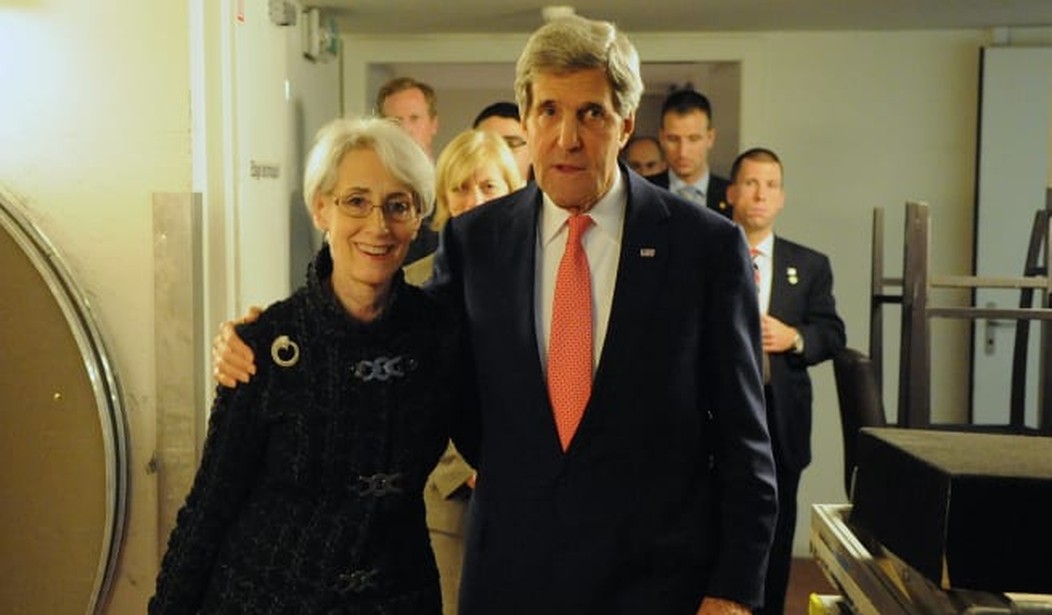WASHINGTON — The Obama administration appeared before both houses of Congress today to explain its four-month extension to the nuclear negotiations with Iran — and tried to draw a distinction between “repealing” sanctions as required by law and “waiving” them via executive authority.
That just stoked concerns of lawmakers in both parties.
“I think everyone knows where I stand. I’ve been skeptical of the Iranians’ sincerity from day one. And I cannot say that I am any less skeptical today than I was six months ago. I do not believe Tehran has had a change of heart about its nuclear program,” Senate Foreign Relations Committee Chairman Robert Menendez (D-N.J.) said at the morning’s hearing.
“I also get concerned when I hear ‘if no deal, what’? Because that implies that you have to get a deal at any cost. And so, I know that there are those in the disarmament community and in the editorial pages who suggest that those of us who really want to make sure that we get a good deal somehow have this penchant for wars.”
Menendez made clear he had no patience for “the State Department’s talking points” but instead wanted to hear “what happened at the negotiating table that brought Iran closer, to their view, to a deal, if only they had another four months.”
“I also want to be clear today that I do not support another extension of negotiations,” he said. “At that point, Iran will have exhausted its opportunity to put real concessions on the table, and I will be prepared to move forward with additional sanctions.”
Ranking member Bob Corker (R-Tenn.) said numbers of classified and unclassified briefings only increased their concerns. “I mean, in each case, on the important issues, we feel the goal post moved,” he said. “…I hope that today you will publicly commit that there will be absolutely no more extensions — none — no matter where we are at the end of this four-month period, there will not be additional extensions.”
Undersecretary of State Wendy Sherman, who has been leading the U.S. team at the P5+1 negotiations, told the senators, “I cannot tell you today that our diplomacy will succeed because I am not sure that it will.”
“I have learned in negotiations that it is very difficult to say what will happen at the end of any given period of time… Our intent is absolutely to end this on Nov. 24 in one direction or another.”
Sherman wouldn’t be clear on how long of an agreement is being sought. Menendez has insisted on a period as long as 30 years, while Iran is suspected of lobbying for short-term concessions to get out of a long-term agreement.
“We believe that the duration of this should be at least double digits, and we believe that it should be for quite a long time,” she said. “I’m not going to put a specific number on the table today, because that is a subject of very sensitive negotiations, but I’m happy to discuss that with you in a classified setting.”
“We did not — we made a very conscious decision not to go for a six-month extension, which was possible under the JPOA because we thought we would just get to month five before anything would happen.”
Corker reminded Sherman of an April 8 statement by Kerry “that the administration is obligated under law to come back to Congress for any relief of statutorily imposed sanctions on Iran, and any agreement with Iran will have to pass muster with Congress.”
“I want you to clearly state to me, will you or will you not come to Congress before lifting — whether it’s a waive, a temporary waive, a skate-down-the-road, whatever, no way will you lift any kind of relief on Iran, period, after this next agreement is reached or not reached without coming to Congress?” he asked.
“We cannot lift any sanctions without congressional action. We can, as you said, suspend or waive under the current legislation. We will not do so without conversations with Congress,” Sherman said. “If you are asking, senator, whether we are going to come to Congress for legislative action to affirm a comprehensive agreement, we believe, as other administrations do, that the executive branch has the authority to take such executive action on this kind of a political understanding that might be reached with Iran. I can’t tell you whether we will or not.”
“So, you’re here telling me you can’t be any more clear than coming and having the same kind of conversation you’ve had in the past when asked this,” Corker said. “You’re telling us what you’re going to do.”
“Senator, the United States Congress and the United States Senate has oversight authority and legislative authority,” Sherman shot back. “You are free to decide what action you think is appropriate, or any executive branch’s decision by any administration.”
But Wendy Sherman and Treasury Undersecretary for Terrorism and Financial Crimes David Cohen faced similar skepticism at the House Foreign Affairs Committee in the afternoon — from the president’s own party.
Rep. Brad Sherman (D-Calif.) noted that Cohen has said sanctions would come down on a nuclear Iran “like a ton of bricks.”
“I think you need more bricks,” he said.
Rep. Sherman noted that despite the administration maintaining that the Iranian economy is still suffering from the weight of sanctions, “the fact is, their economy is growing at 2 percent now. In America, we call that a recovery, not a regime endangerment.”
“I don’t think we’re going to negotiate a good enough deal,” Rep. Sherman continued. “Not because Ambassador Sherman is a bad negotiator, but because I don’t think you have enough leverage. We should pass sanctions now that go into effect in January or February. And I know that Secretary Kerry has reported in the press to have thought that that was a good idea, but needed to check with the White House. He checked with the White House. And then he — and then the reports in the press was that he never said it to begin with. In any case, you need that additional leverage.”
Rep. Sherman asked Cohen if “the administration, without Congress, can use the power we have given you to waive individual transactions, and instead, waive whole classes of transactions.”
“Do you need Congress, or can you just stretch the existing law so as to give the Iranians the ability to operate sanction-free?” he asked.
“The position of the administration is, as we look forward in a comprehensive agreement, if one is to be had, to involve Congress in every step of the way — close consultation,” Cohen replied.
“Look, you’re going to talk to us all we want. Let’s say we say no to this deal. Are you going to be able to implement anyway by stretching the statutes and using your case-by-case waiver to make blanket waivers that deliver to the Iranians?” shot back Rep. Sherman. “And do you realize and do the Iranians realize that the next president may be elected on a platform of no more waivers?”
“‘Consultation’ means we’ll tell you no and you’ll do it anyway,” continued the California Dem. “Let’s say we say no in every meeting and every vote on the floor. You going to do it anyway or do you have the right to do it anyway?”
“Congressman, I’m not in a position to answer that question,” Cohen said.
“In other words, the imperial presidency grows further,” said Rep. Sherman.
The congressman sparred with a fellow Democrat on the panel over his suggestion of one way Iran could be compelled to cooperate.
“The other additional leverage you need is for Israel not to just have 2,000- to 5,000-pound bunker-buster bombs, but the truly massive 30,000-pound bombs. Now — and the B-52s, which we have in our boneyard, necessary to deliver them,” Rep. Sherman said. “I’m not saying you make that transfer immediately, but you begin efforts toward that transfer, and I think you’ll see a much better response between now and November.”
“All options need to be on the table. And, frankly, the military option comes more out of Jerusalem than it comes out of Washington.”
Rep. Gerry Connolly (D-Va.) said he was “a little fearful that we may be making perfect be the enemy of the good and I — especially when we talk about a military response from Israel as if that’s the only solution.”
“I’m sure my friend didn’t mean that but when we talk about 30,000-pound bunker-busters and taking airplanes out of the boneyard to deliver them, that certainly sounds like we favor a military option before we have completed the diplomatic process,” Connolly said.
“Just for the — the record, I said no actual transfer, just be in the process until after November,” Rep. Sherman cut in.
“I would just caution that we’re in the middle of a diplomatic process and if Congress to intervene that way, it sends a clear signal that we have given up on the diplomatic process and at least, this member of Congress — and I believe there are others — is not quite ready to make that judgment just yet,” Connolly said.









Join the conversation as a VIP Member